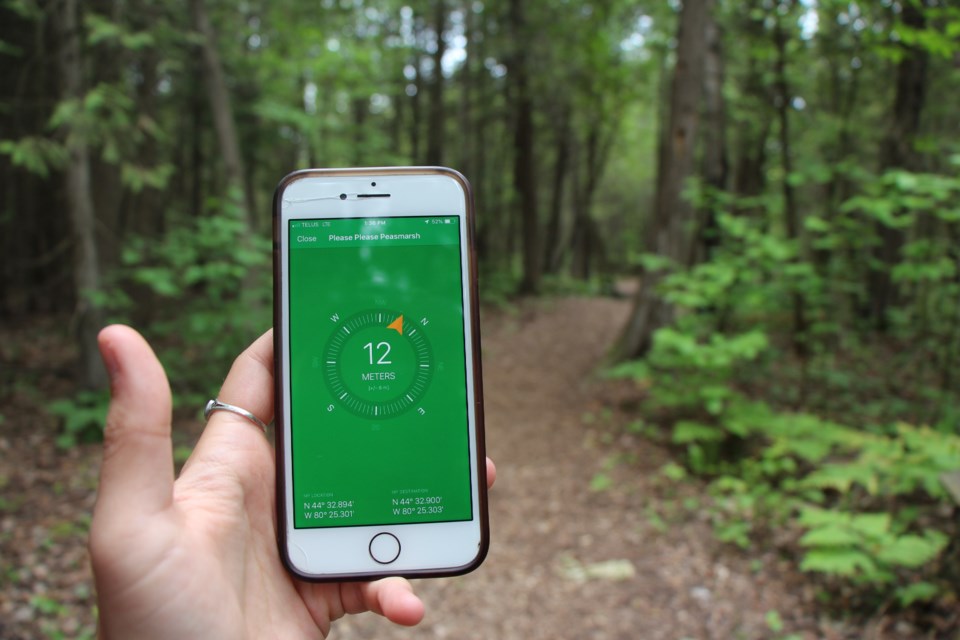Where once the world’s largest treasure-hunting community had an affinity for peg legs, parrots, and eye patches, in today’s digital world, the treasure hunters are landlubbers with smartphones and Tilley hats.
They’re known as geocachers, and their treasures are hiding along trails and paths throughout Collingwood. In fact, there are 473 geocaches located in the Collingwood area - near endless Xs on the digital treasure maps.
How it works
Geocaching is a real-world, outdoor treasure hunting game using GPS-enabled devices - often smartphones. Participants navigate to a specific set of GPS coordinates and then attempt to find the geocache container at that location.
Geocaches can be found all over the world and are typically filled with a hodgepodge of trinkets, a log book and a pencil, and sometimes a disposable camera.
But this isn’t a finders-keepers pirate-esque treasure hunt. If you take something from the geocache, proper ‘caching etiquette demands you place something else in its place - of equal or greater value.
Successful players record their name and the date in the log book, and some even write a note for future finders.
Collingwood ‘Caching
Ontario Trails Council recently added geocaching as the newest category to the trail inventory. Locations in Collingwood vary from Sunset Point Park and the cinema parking lot, to tree stumps in Loree Forest and park benches at the pier.
Melinda De Lottinville and her 5-year-old son, Rory, have immersed themselves in the hunt. De Lottinville says they love it because it gets them outside. Plus, her kids love seeing what trinkets and treasures may be waiting for them.
“It’s the perfect balance between technology and nature. We use our phones to get outside and see new things,” she says.
“Once you find the geocache you pick something out of it, but if it’s very wet I don’t usually take anythin g,” said Rory. “One time my friend got a toy phone. My favourite thing I took was a pocket knife!”
De Lottinville says they don’t always find the geocache they are looking for. “There is one in Owen Sound we have gone to three times now, and we still can’t find the container anywhere.”
Ajeeth Parkal and his wife, Tara, are in Craigleith on weekends and have contributed to the community by hiding a few geocaches of their own.
“I don’t even remember how many we have set up at this point. At least five or six, and we have over 100 finds of our own,” said Parkal.
The couple fell in love with the game years ago while they were out hiking and camping with their friends.
“It’s a great way to see new trails around the Collingwood area. We’re up pretty much every weekend, so it’s a good way to discover areas we haven’t seen,” he said. “It’s exposed us to some beautiful trails.
The Parkals decided to hide a geocaches of their own for that same reason.
“A lot of people visit this area, so this is our way of helping show them around. We hid one close to our cottage by the train depot and another in Loree Forest, he said. "We want people to discover a trail or site they wouldn’t normally see.”
Worldwide, there are more than four million people who have made a hobby out of geocaching.
Ways to Play
If you’re interested in trying out some geocaching, a good place to start is online, where you can sign up for an account to track your finds, and download an app for your smartphone if you don’t already have another GPS-enabled device to use.
The website will also show you a map of geocaches near you. You can purchase official geocaching supplies like cache containers,GPS watches, and starter kits.
When you head out, bring a pen or pencil and some items to leave in the cache.
Forget walking the plank, walk the trails and give geocaching a try.
